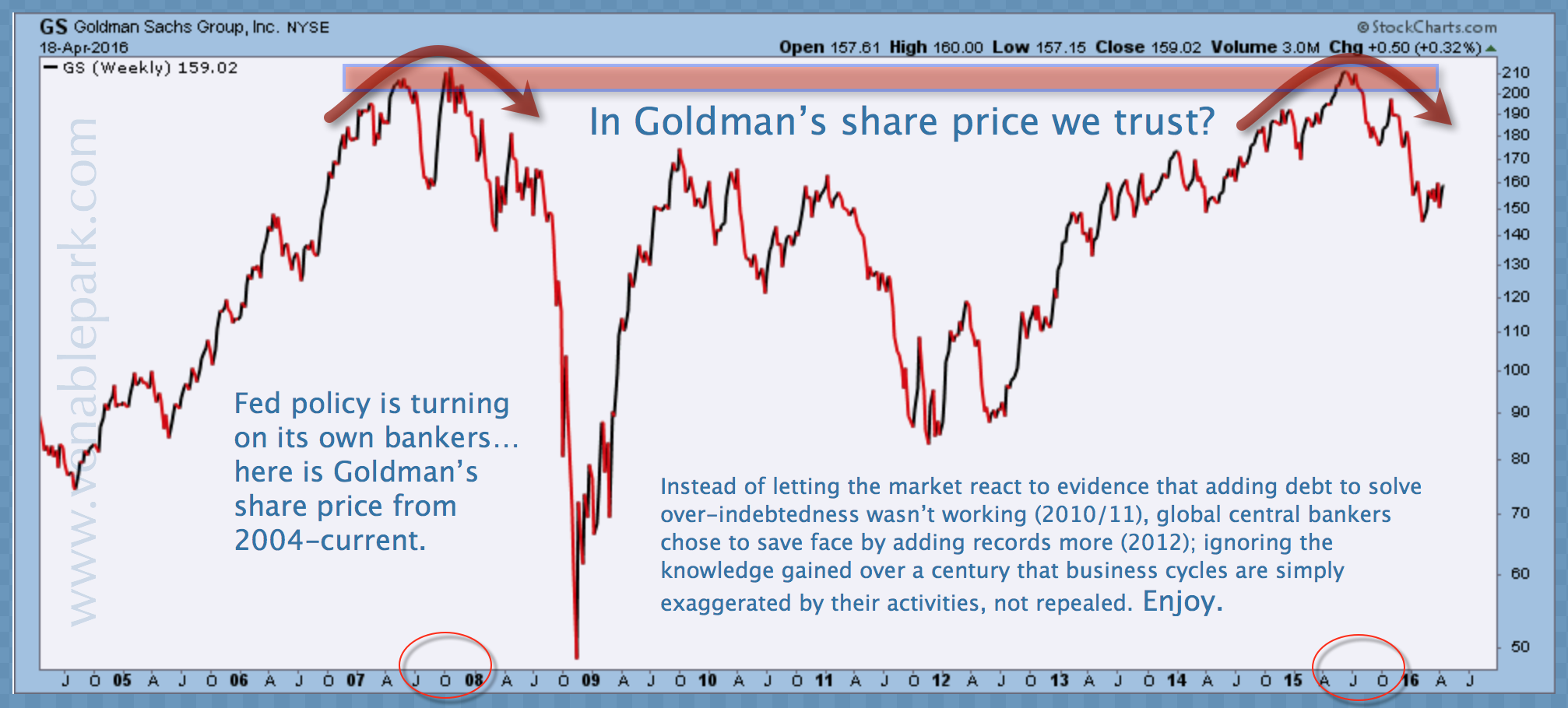In September 2010, the Financial Crisis Inquiry Commission compiled and referred evidence of serious violations of federal securities laws by financial firms to the US Department of Justice.
In response, the bank-swayed Justice Department went through the motions of investigation and ended up negotiating just over $40 billion in faceless fines from 18 large financial institutions without naming or holding one single executive or individual accountable civilly or criminally for the actions that led to the fines.
While $40 billion in fines may sound like a large penalty on the offending firms, in reality it is a tiny fraction of the 100’s of billions in profits the crimes continue to generate, and was deducted as an expense of doing business paid for by shareholders like pension beneficiaries and mutual fund holders.
The latest insult to justice, democracy and financial injury, was the settlement announced last week that Goldman Sachs would pay some $5 billion for crimes related to its sales of mortgage securities prior to 2008. In reality the ‘penalty’ for Goldman is greatly softened by special credits and tax deductions it was able to have included in the deal. But that isn’t the half of it. See: No consequences, no justice in Goldman Sachs settlement
Big bank CEO’s like Jamie Dimon of JP Morgan and Lloyd Blankfein of Goldman Sachs have been obscenely enriched for their ‘stewardship’ in these matters. Both men personally became billionaires between 2012 and 2015 during the taxpayer backed liquidity injections into financial markets by central banks (headed by a pack of Goldman alumni) around the world.
 No wonder the biggest banks were happy to pay Presidential hopeful Hillary Clinton a few million for morale boosting speeches to their staff in the process. Money well spent for them indeed.
No wonder the biggest banks were happy to pay Presidential hopeful Hillary Clinton a few million for morale boosting speeches to their staff in the process. Money well spent for them indeed.
For the rest of us though, the costs of this contortion and queering of equitable principles, fairness and incentives is compound and cancerous for the free markets, capitalism and democracy everywhere. When a select few are repeatedly allowed to break laws and retain their freedom, profits and privilege in the process, the society moves away from one where merit, skill and integrity are valued to one where cheating, gaming, and winning become the dominant preoccupation. We are there today; and all that is admirable, worthy and sustainable is being nullified in the process. For further consideration on this timeless topic that has moved in waves through human history, see this 1907 essay: The Ethics of Speculation.
No system this flawed can last indefinitely, as its very structure inevitably undermines its strength. But the costs can be long and lasting. If we are to build a brighter future, we must first reconstruct this crooked foundation. Doing otherwise will continue to waste our most precious, finite resources. And we cannot afford it.


